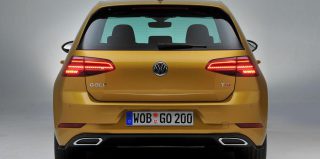www.uppermichiganssource.com After Ishpeming’s Labor Day parade, union members and community members gathered at the Lake Bancroft Park for a picnic, family entertainment and a beer tent, manned by Senator Scott Dianda and two Democrat candidates. To learn more about donating to the ease efforts, click here.
Trump’s ignorance of the auto industry is appalling
Donald Trump sold himself as a presidential candidate who understood business, but since his victory he has demonstrated a frighteningly narrow take hold of of modern, globalized industries.
The latest example? His comments on Germany’s automakers.
Der Spiegel and other German media outlets reported on Thursday that Trump had called Germany “very bad” because it runs a trade surplus with the US. Then, to illustrate what is so bad, he turned to the auto industry.
Trump said he would stop German automakers from selling “millions of cars” in the US, Der Spiegel reported.
There are so many ways to unpack what’s wrong in that statement. German car brands — namely Volkswagen, BMW, Porsche, Audi, and Mercedes — account for only about 7% of annual US auto sales.
We’re talking a little over a million cars a year. Ford and GM sell five times that.
Maybe more significant, given Trump’s obsession with creating US manufacturing jobs, is that many of these German cars are actually made in the United States, in factories that were hailed as economic windfalls for the southern states they are located in.
Decades of German cars
On sale in America. BMW
Germans have been selling cars in the US for decades, dating all the way back to the frantically successful Volkswagen Beetle. And Volkswagen — the only real mass-market competitor from Germany — is a notably feeble threat. Its market share in the US is a pathetic 2% (if you round up slightly).
For this, VW built an entire plant in Tennessee, employing Two,000 workers directly.
Where the Germans do predominate is in the luxury market, where Mercedes, BMW, and VW Group’s Audi all have a strong presence. Both BMW and Mercedes also have established factories in the US South. In BMW’s case, over half its SUV production in South Carolina is actually exported out of the country.
There also isn’t much head-to-head competition inbetween American automakers and the Germans in this market. American luxury brands such as General Motors’ Cadillac and Ford’s Lincoln sell half as many vehicles in the US as the Germans, but the concentrate of GM and Ford is on big mass-market SUVs and pickups, very profitable vehicles for which there is almost no challenge from German brands.
So this is another one of those cases in which Trump just doesn’t know what he’s talking about — but he says it anyway. Maybe he thinks German cars are challenging unfairly against American cars because there are a lot of bimmers and mercs in the parking lot at Mar a Lago and other Trump country clubs.
Another bad Trump deal
GM sold its Opel unit to Peugeot. Screenshot via PSA
When it comes to the European market, the US automakers are choosing mostly not to contest. GM just shed its Opel/Vauxhall division after years of poor spectacle, and Ford uses Europe as a place to sell the puny cars that Americans aren’t interested in buying.
They’re much better off right now focusing on the high-margin trucks that their American customers do want.
So, were he serious, Trump could undertake a policy that makes it difficult for German automakers to export to the US. But that wouldn’t do much to help American carmakers, and it would just enrage consumers who love their BMW SUVs and would never consider a Cadillac or a Lincoln, regardless of how superb those vehicles might be.
Of course, Ford and GM wouldn’t mind if BMWs and Mercedes abruptly became more expensive. They could pick up some marginal sales against the competition, but they aren’t going to add enough market share with Caddy and Lincoln to justify the hiring and factory-building in the Midwest that Trump so urgently needs.
The Ford Mustang is big in France. Ford
And in doing so Trump would potentially undermine the economies of the rock-solid GOP states in the South that have flipped out the crimson carpet to foreign automakers.
The president’s thickest problem here is that he is seemingly hardwired to see economic relationships stringently in terms of winning and losing. The best deal for the American people, car-wise, has been to create a market in the US that is spectacularly competitive. This has delivered abundant choice and compelled everybody to play at the top of their game.
With German, Japanese, South Korean, and even Italian cars on sale in the US, Americans are far better off than they were when GM managed half the market back in the 1950s and early 1960s. The dirty secret is that Trump doesn’t actually like competition. Many of his voters don’t like it, either. They would choose protected markets, a kind of American socialism that would mimic the static capitalism of the instantaneous postwar period.
That would be a false capitalism, of course. But it would make an enemy of countries, like Germany, that aren’t a threat. So Trump talks it up.
It looks as if there’s a political logic to it. But as with so much that Trump the businessman president says, it all falls apart when you examine the actual business case.



